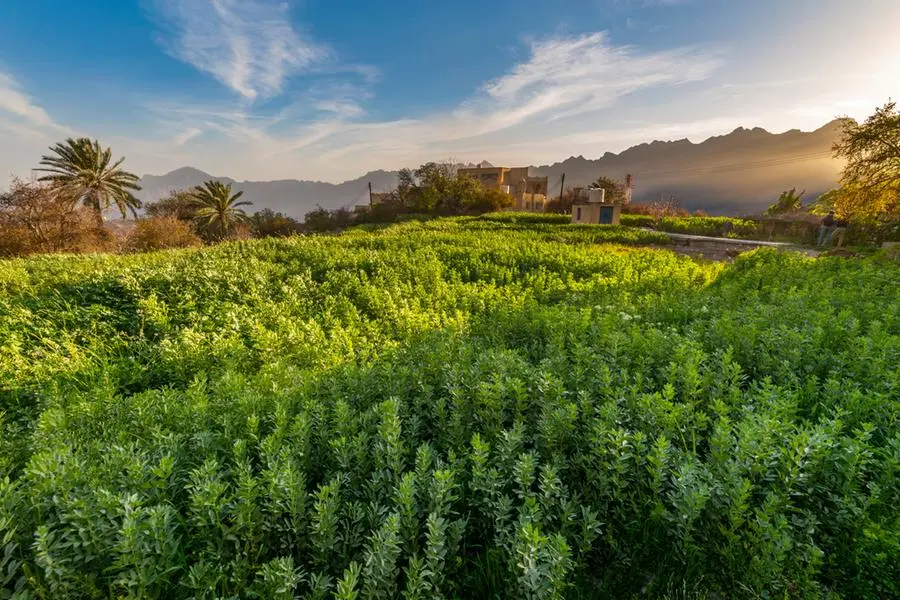PHOTO
Muscat: The Ministry of Agriculture, Fisheries, and Water Resources (MAFWR) in Oman is dedicated to fostering sustainable agricultural development with a focus on enhancing food security, increasing agricultural production, and managing pest threats. As part of this effort, the Ministry is promoting a range of initiatives aimed at increasing private sector involvement in agricultural development and ensuring the long-term sustainability of Oman’s agricultural resources.
To boost local agricultural productivity, the Ministry distributed a significant number of commercial fruit seedlings to farmers, including 41,000 Omani lemon seedlings, 25,000 mango seedlings, and thousands of guava, fig, papaya, coconut, sidr, and pomegranate seedlings. Additionally, over 27,000 tissue-cultured and traditional date palm offshoots will be distributed in 2024 across Oman, supporting local date palm cultivation over 270 acres.
Nakheel Oman Development Company has also been a key player, overseeing 11 farms across six governorates with a total of 500,000 date palms. The company markets its date-based products under the brands “Tamrah,” “Nizwa,” and “Zad” for both local and international markets and utilizes an advanced tissue culture lab to produce date palm offshoots and other seedlings, helping ensure the quality and sustainability of date production in Oman.
In pursuit of self-sufficiency, the Ministry expanded wheat cultivation to over 8,940 acres last year, yielding more than 11,600 tonnes of wheat. This crop expansion included 17 wheat varieties to enhance production diversity and resilience against agricultural challenges. The Ministry has also progressed in grape cultivation, with 25 commercial fields established, and has invested in olive farming projects, particularly in Jebel Akhdar and other mountainous regions. This olive cultivation initiative includes the free distribution of 10,000 olive cuttings to farmers and the establishment of a local olive oil extraction unit.
To safeguard agricultural wealth from pests, the Ministry has implemented extensive control projects, including large-scale aerial spraying to combat date palm moths, red palm weevils, and other agricultural pests. Advanced pest control techniques, such as drones and helicopters, were deployed to cover a substantial acreage, aiming to protect crops and improve yields.
Regulatory efforts by the Ministry have strengthened pesticide and fertilizer markets through the issuance of new licenses and the regulation of import and export activities. Last year, the Ministry issued 96 pesticide registration certificates and 225 retail licenses for fertilizer sales, among other permits. These measures, coupled with inspection efforts, ensure quality and adherence to environmental and health standards, helping safeguard both plant health and consumer safety.
Further initiatives include inspections across local farms and commercial agricultural enterprises to maintain compliance with standards. Thousands of inspection visits were conducted, resulting in the identification of several violations, such as unauthorized land use and trading in unlicensed agricultural products. To enhance plant health, the Ministry has facilitated import permits for various plants and plant products and inspected agricultural shipments to verify their safety and quality.
Through these efforts, the Ministry is actively contributing to Oman’s food security, increasing agricultural resilience, and promoting sustainable practices that align with Oman Vision 2040, ensuring a stable and prosperous agricultural sector for the future.
© Muscat Media Group Provided by SyndiGate Media Inc. (Syndigate.info).





















